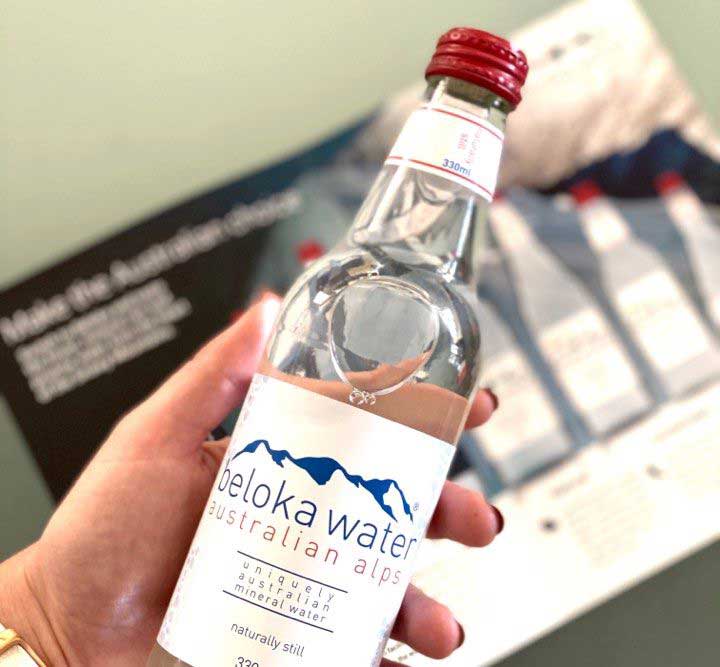When it comes to choosing between mineral water and tap water, many people find themselves at a crossroads. Which is the healthier option? In this blog post, we will explore the differences between mineral water and tap water, focusing on their health benefits, potential risks, and environmental impact. By the end, you will have a clearer understanding of which type of water might be the best choice for you.

Understanding Mineral Water
Mineral water, such as Beloka Water, is sourced from natural springs and contains various minerals that are beneficial to health. These minerals include calcium, magnesium, potassium, and sodium, among others. The unique composition of mineral water can vary depending on the geological characteristics of the source.
Health Benefits of Mineral Water
- Rich in Essential Minerals: Mineral water is a natural source of essential minerals that our bodies need to function properly. For instance, calcium is crucial for bone health, while magnesium supports muscle and nerve function.
- Hydration: The presence of minerals in water can enhance its taste, making it more enjoyable to drink and encouraging better hydration.
- Digestive Health: Some types of mineral water, particularly those high in magnesium, can aid digestion and help prevent constipation.
- Skin Health: The minerals in water can also benefit the skin, promoting a healthy complexion and potentially reducing the risk of certain skin conditions.

Understanding Tap Water
Tap water is the water that comes out of our household faucets. It is typically treated and purified by local municipalities to ensure it is safe for consumption. The quality of tap water can vary significantly depending on the location and the effectiveness of the local water treatment facilities.
Health Benefits of Tap Water
- Accessibility: Tap water is readily available and convenient for most people. It is also significantly cheaper than bottled mineral water.
- Fluoridation: In many areas, tap water is fluoridated to help prevent tooth decay. This has been a common public health measure for decades.
- Regulation: Tap water is subject to strict regulations and regular testing to ensure it meets safety standards.
Comparing Mineral Water and Tap Water
Mineral Content
One of the primary differences between mineral water and tap water is their mineral content. Mineral water, like Beloka Water, is naturally rich in minerals, which can provide additional health benefits. Tap water, on the other hand, may contain varying levels of minerals depending on the source and treatment process. In some regions, tap water may lack certain essential minerals, making mineral water a more beneficial choice.
Taste
The taste of water can be influenced by its mineral content. Many people find that mineral water has a more pleasant and refreshing taste compared to tap water. This can be particularly true for Beloka Water, which is known for its balanced and mineral-rich composition. The taste of tap water can vary widely depending on the local water supply and treatment methods, with some people detecting a chlorine or metallic taste.
Safety and Contaminants
Both mineral water and tap water are generally safe to drink, but there are potential risks associated with each. Tap water is treated to remove harmful contaminants, but issues can arise if the local water supply is compromised or if there are problems with the plumbing. Mineral water is sourced from protected springs, but it is important to choose reputable brands like Beloka Water to ensure quality and safety. Additionally, bottled water should be stored properly to avoid contamination.
Environmental Impact
When considering the environmental impact, tap water has a clear advantage. It does not require bottling or transportation, reducing its carbon footprint. However, companies like Beloka Water are making strides to minimise their environmental impact by using recycled glass bottles and sourcing materials locally. Choosing mineral water from environmentally conscious brands can help mitigate some of the environmental concerns associated with bottled water.
Making the Right Choice for You
When deciding between mineral water and tap water, it is important to consider your individual health needs, preferences, and environmental values. Here are some factors to keep in mind:
- Health Needs: If you have specific health concerns or dietary requirements, the mineral content of mineral water may provide additional benefits. For example, individuals with low magnesium levels might benefit from drinking mineral water high in magnesium.
- Taste Preferences: If you find tap water unpalatable, switching to mineral water might encourage you to drink more and stay better hydrated.
- Environmental Considerations: If you are concerned about the environmental impact of bottled water, look for brands like Beloka Water that prioritise sustainability and use eco-friendly packaging.
- Convenience and Cost: Tap water is more convenient and cost-effective for everyday use. However, keeping a supply of high-quality mineral water on hand for special occasions or when you need an extra boost of minerals can be beneficial.
Conclusion
In the debate between mineral water and tap water, there is no one-size-fits-all answer. Both types of water have their own unique benefits and potential drawbacks. By understanding the differences and considering your own needs and values, you can make an informed decision about which type of water is best for you.
At Beloka Water, we are proud to offer mineral-rich, pristine water sourced from the heart of the Snowy Mountains. Our commitment to quality and sustainability ensures that you can enjoy the health benefits of mineral water while supporting an environmentally conscious brand. Whether you choose to drink tap water or indulge in the refreshing taste of Beloka Water, staying hydrated is the most important thing for your health and well-being.
Stay hydrated and stay healthy!
